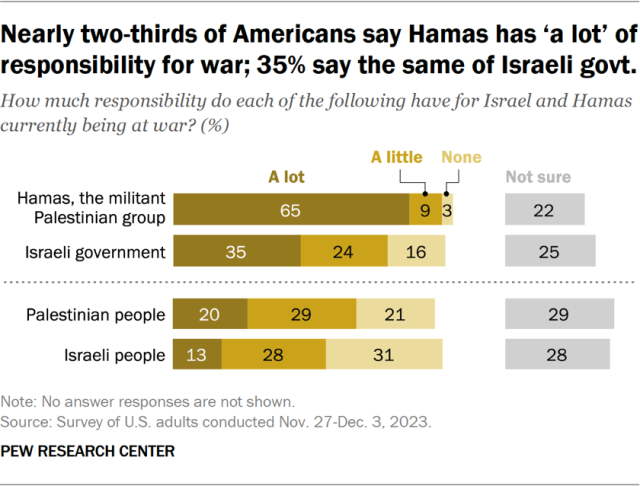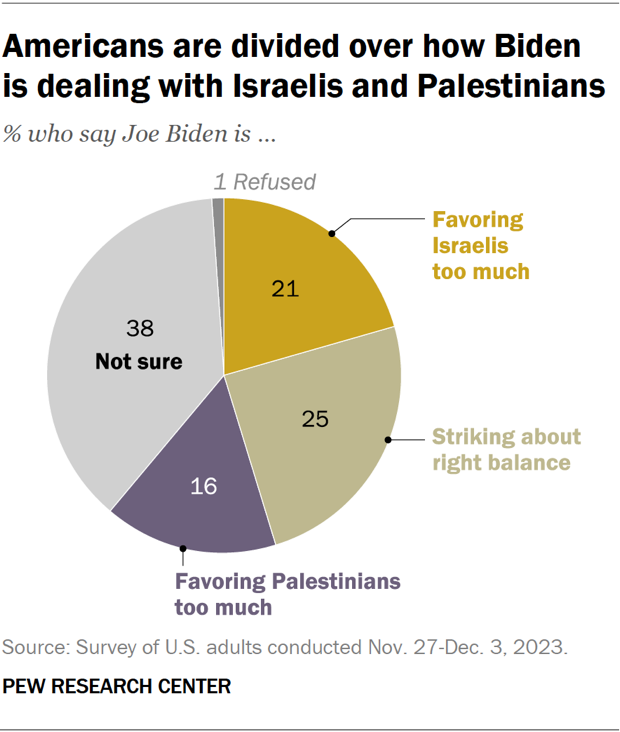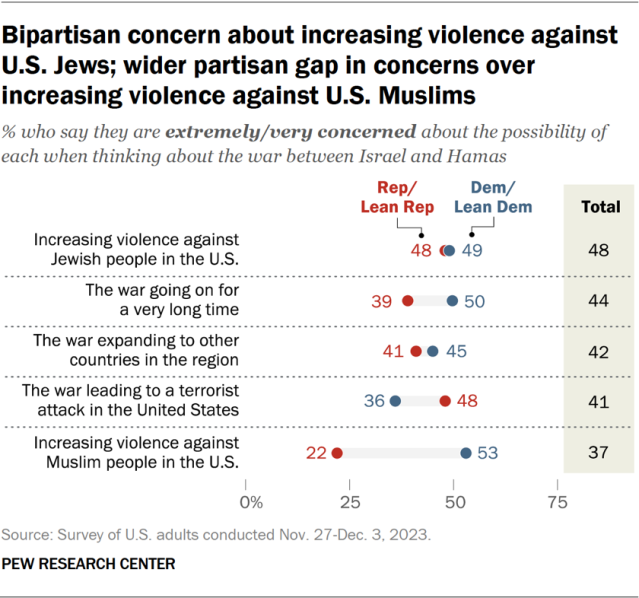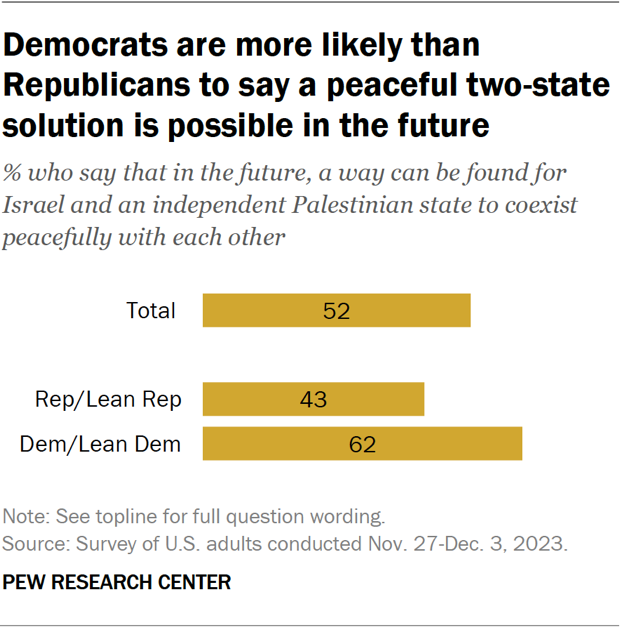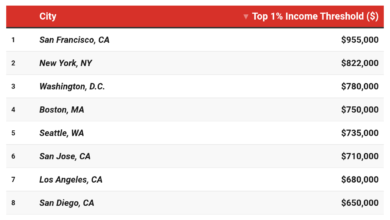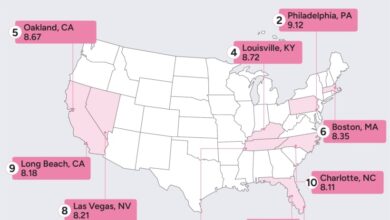Study ; Americans’ Perspectives on the Israel-Hamas Conflict
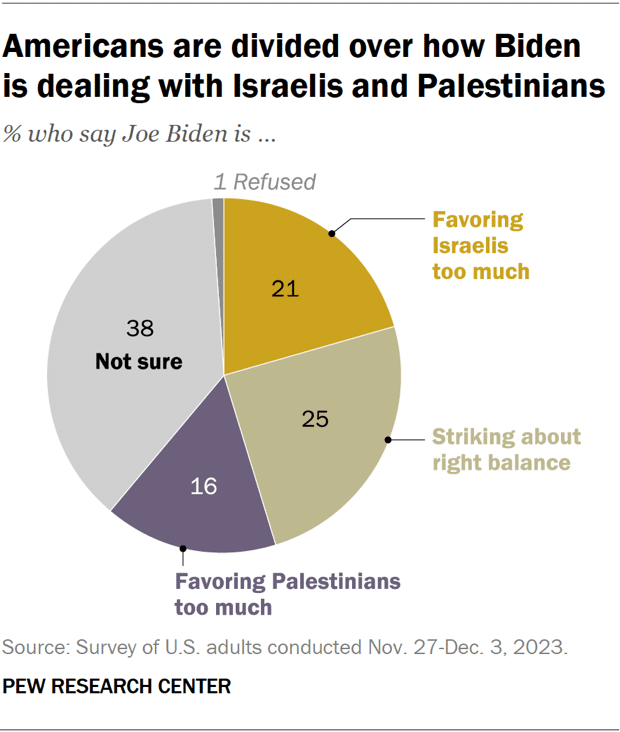
Survey indicates that a majority of Americans attribute the primary responsibility for the war in Gaza to Hamas.
The Pew Research Center’s new poll revealed that 65 percent of respondents, spanning the political spectrum, believe that Hamas holds a greater share of responsibility for the conflict. Notably, Democrats (50 percent) are more than twice as likely as Republicans (21 percent) to attribute a significant portion of responsibility to the Israeli government.
Approximately 20% of Americans attribute responsibility for the ongoing Gaza war to Palestinians, while 13% point the finger at Israel. This conflict, now spanning two months, has stirred concerns about a potential larger-scale war in the Middle East, causing a divide in opinions among Americans, particularly Democrats.
The Biden administration has firmly supported Israel throughout the conflict. Despite a majority of Americans endorsing this stance, recent polls indicate less enthusiasm for President Biden’s handling of the U.S. response to the war. Roughly one-third approve, while over 40% disapprove, as per the Pew survey.
Approximately 50% of Republicans disapprove of Biden’s actions, whereas among Democrats, opinions on Biden’s Israel policy are more divided, with around 44% approving and 33% disapproving, according to the poll.
This week, the Israeli military initiated a ground operation in southern Gaza, despite U.S. government warnings to minimize civilian casualties. The conflict started on Oct. 7, triggered by a brutal attack by Hamas militants that resulted in the deaths of about 1,200 Israelis. Since then, over 17,000 Palestinians, including 7,000 children, have lost their lives in the ongoing war.
The United Nations and humanitarian organizations persist in urging an indefinite cease-fire in the conflict to aid civilians, but both the Biden administration and the Israeli governments have declined.
According to a Pew poll conducted from Nov. 27 to Dec. 3, involving approximately 5,200 respondents, the margin of error is 1.8 percentage points.

